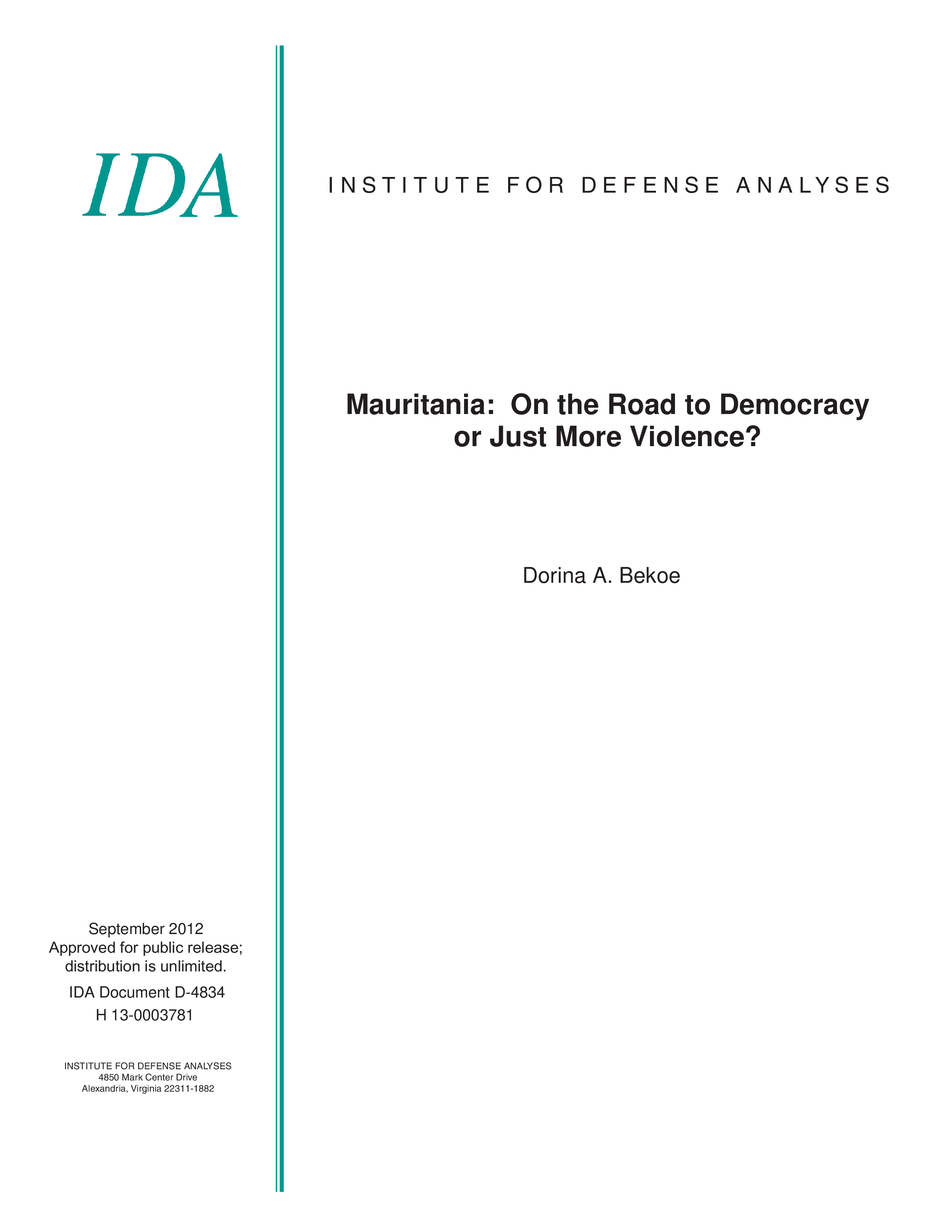Mauritania: On the Road to Democracy or Just More Violence?
September, 2012
IDA document: D-4834
FFRDC: Systems and Analyses Center
Type: Africa,
Documents
Division: Intelligence Analyses Division,
Global Dynamics and Intelligence Division
Authors:
IDA document: D-4834
FFRDC: Systems and Analyses Center
Type: Africa
Division: Intelligence Analyses Division
Authors:
Authors
Dorina A. Bekoe
See more authors

